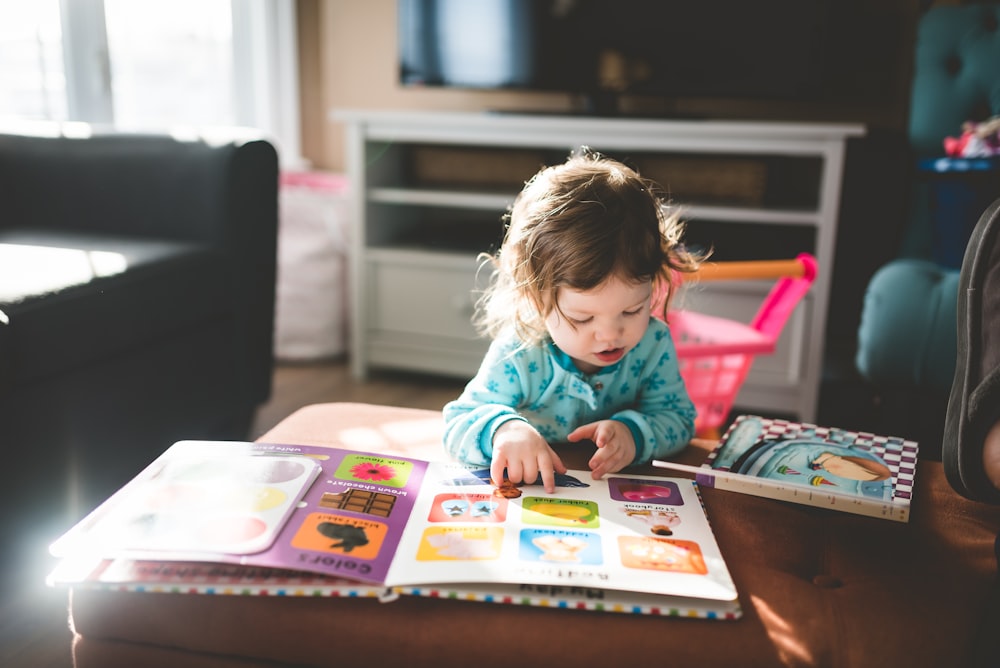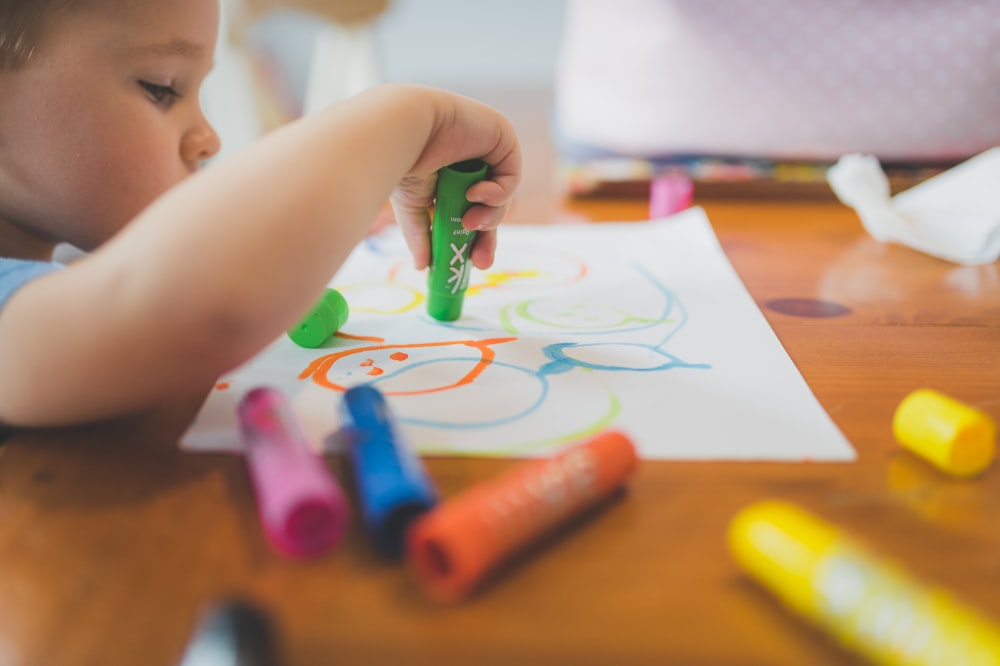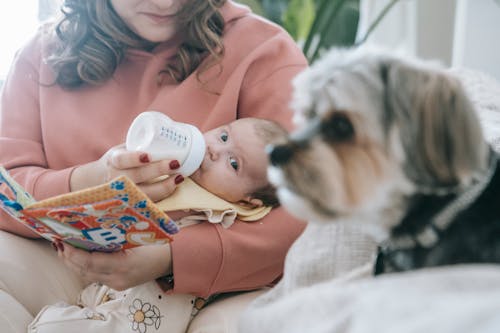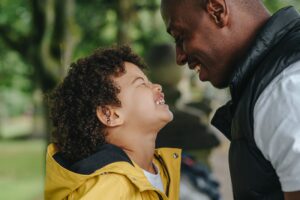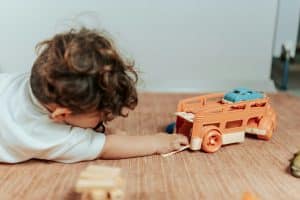Your baby won’t speak their first words until around their first birthday, but they are learning language right from the start! Before your baby is born, they will recognize mom’s voice and quickly learn to recognize the voices of other close adults and siblings.
Your little one’s brain develops in the womb from almost the start and will continue to grow rapidly until the fifth year, with the first three being the most crucial. 90% of your child’s brain will develop by their 5th birthday, with the remaining 10% taking the next twenty years! Kneebouncer games are an excellent way to enhance your little one’s literacy development, but before they’re ready to play, there is so much you can do to boost their language!

The more you surround your baby with language and experiences, the more their tiny brains will grow and develop! So what exactly happens during those first three years, and why are they crucial to language and literacy?
Your Baby is a Blank Slate
Babies are born without language, and their brains have the capacity to learn any language in the world. In fact, your baby’s brain is so malleable it can learn several languages at once; if you’re in a dual-language household, don’t shy away from speaking both languages.
Research shows that multilingual children perform better in school, have increased social skills and empathy, have improved memory and problem-solving skills, and have stronger skills in their first language.
Even if you are not multilingual, you can introduce your baby to a new language using picture books, music, audiobooks, interactive language classes, or apps designed for babies. The more you talk to your baby and expose them to language and books, the more words they will learn. Even if they don’t speak their first words for many months, they are learning and processing language and can understand much more than they’ll speak at first.
0 to 6 months
Talk, sing, and read the weather report; it doesn’t matter as long as you expose your baby to as much language as possible! Let your baby see your face as you talk to them becuase facial expressions will teach them a lot about social cues and the meaning behind words.
Mirror their actions and copy their babble. Around four months old, your baby will be able to differentiate between noises and spoken language. By six months old, your little one will be making some vowel and consonant combos like ba-ba and da-da. So, engage in conversations with them, allowing them to babble in response to your questions or statements.
6-12 months
Your baby’s first words are on the horizon. Most children say their first words between eight and fifteen months, so don’t stress if you hit that first birthday and haven’t heard an actual word yet, especially if your baby seems to understand what you say and interacts with you socially and verbally.
Around eight months, your baby will be able to hear different word sounds and understand where one word ends and a new one begins, but they won’t quite know what these words mean yet.
Somewhere in this window, they will learn what “No” means, even if they don’t always listen when they hear it! Keep the communication going and ask them questions. They will begin to point to objects they want or move towards them if they’re mobile. Name objects for your child and read daily!
12-18 months
Your baby will say their first words if they haven’t already, and probably quite a few more. Your little one’s earliest words will be those associated with their most significant needs. For example, ma-ma and da-da. They may say milk, develop a word for their pacifier or favorite toy, or say their sibling’s name.
They will also begin to understand more words and can probably point to many familiar objects or toys when asked. Your baby should engage with literacy materials by scribbling with chunky crayons, looking through board books, singing finger plays, and listening to you read or makeup stories!
18-24 months
You have a toddler now, not a baby, and they observe everything you do, including writing and reading. As much as we all love to use our phones to make lists and schedules, children must be exposed to writing in various forms to grasp that it has meaning.
Writer grocery lists with your child, label household objects with word cards, and color and draw together. Toddlers love sidewalk chalk, and it’s an excellent way to practice their budding writing skills.
Make sure your kids see you read, too—and not just on a tablet! Have actual books, magazines, and other reading materials around the house. Technology is great, but we want our kids to learn to use the old-fashioned stuff, too!
During these six months, your child will experience a language explosion, so don’t be afraid to use big and new words. The only way your child can learn what a new word means is to hear it used! Around two, your child will begin adding up to five new words daily to their vocabulary!
24-36 months
Hang on tight because your child’s language will continue to explode. They may even begin to recognize their name in print and some letters. You can begin playing ABC games with them, and they’ll begin speaking in longer phrases and sentences. Kids this age love rhyming books and will often request the same book be read to them repeatedly. While somewhat tedious for parents, this repetition teaches your child essential literacy skills and is a precursor to reading.
At this stage, most people should understand your child when they speak. Avoid correcting them when they use incorrect grammar; continue to model the correct language for them. For example, if they say, “I want the ball,” you would say to them. “You would like the ball.”
So much development happens during these first three years, and they are crucial to your child’s language and literacy foundation. Like all skills, children must be exposed to them to learn them, so even though your baby or toddler might not understand what you are saying, keep talking to them! Don’t worry about feeling silly; there’s no one around to judge, and your baby will 100% love the affection and attention!
April 9, 2024, by L. Elizabeth Forry



